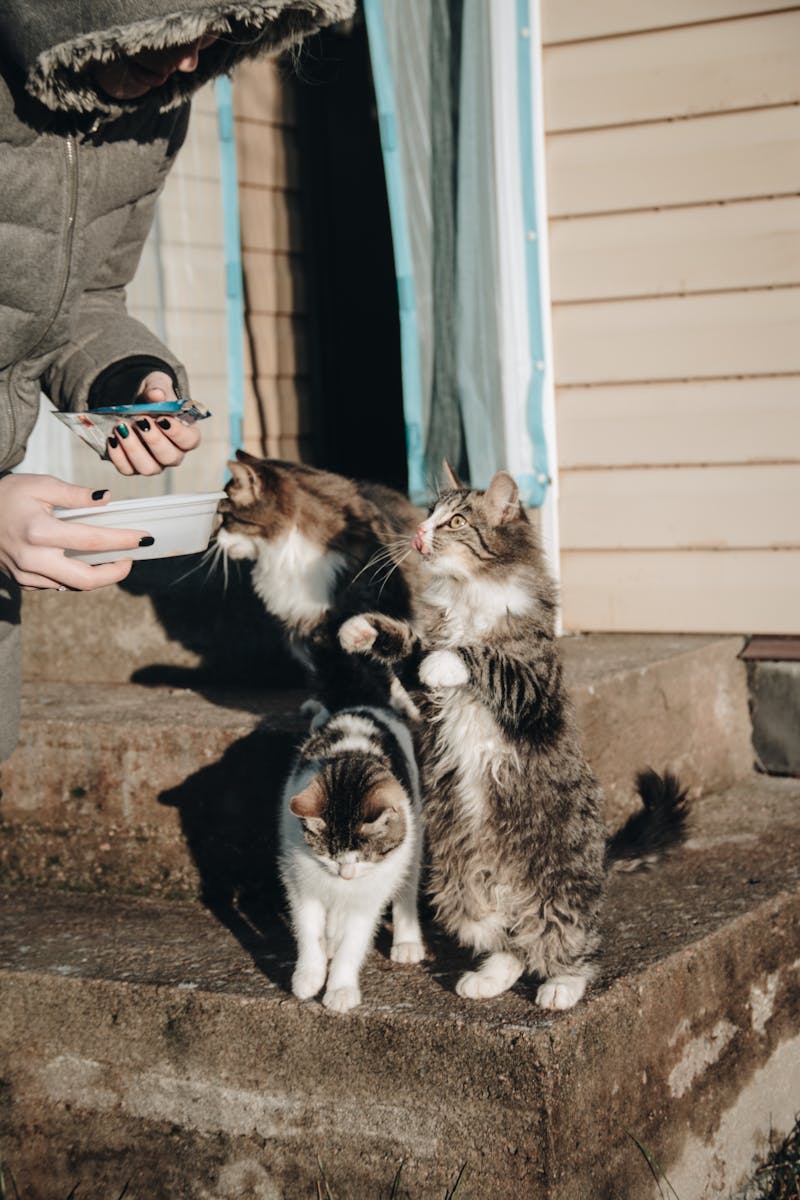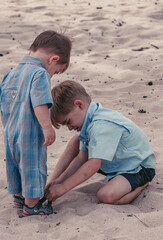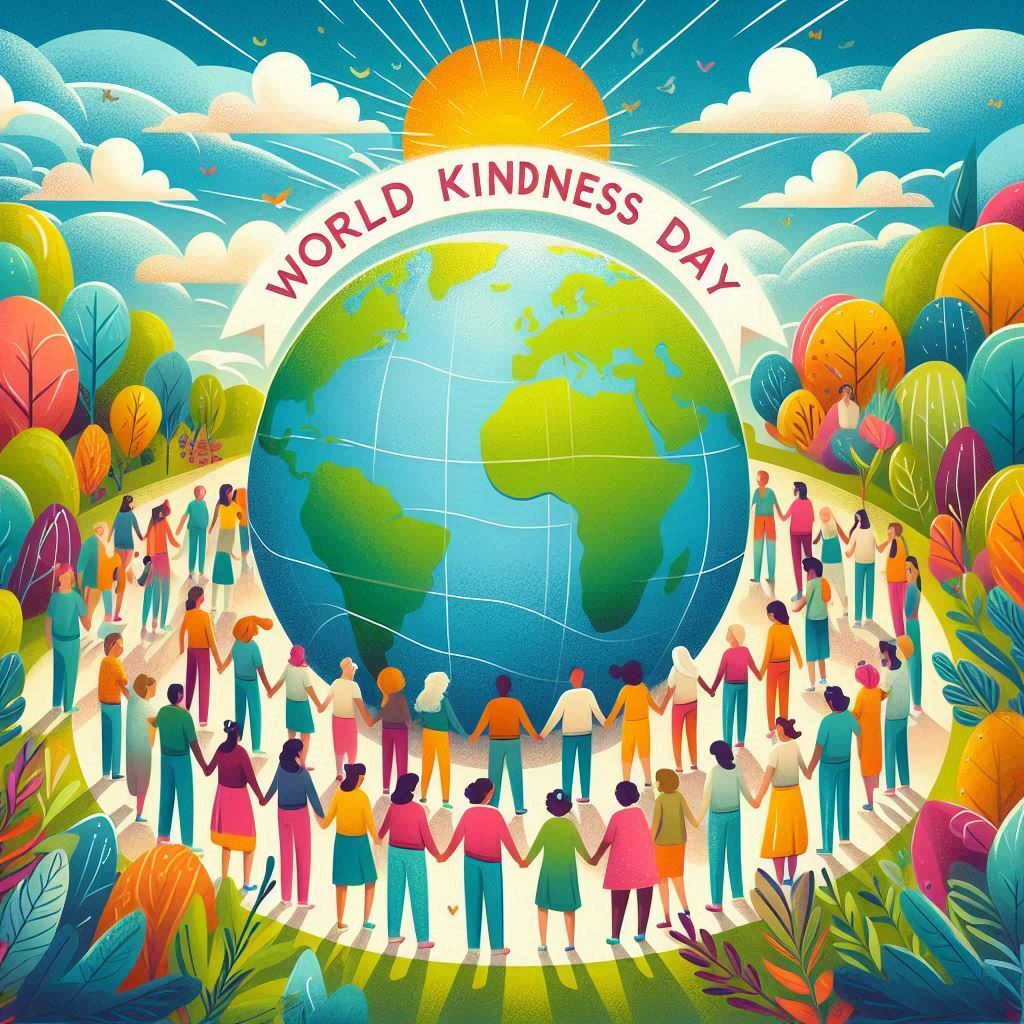World Kindness Day 2024: A Ripple Effect of Goodness
Today is World Kindness Day, celebrated annually on November 13th, and is a global movement dedicated to promoting kindness and compassion. This special day encourages individuals to perform acts of kindness, no matter how small, to create a positive impact on the world.


The Power of Kindness
Kindness is a powerful force that can transform lives and communities. It has the ability to break down barriers, build bridges, and foster understanding. When we choose kindness, we not only uplift others but also enrich our own lives.
How to Celebrate World Kindness Day
There are countless ways to celebrate World Kindness Day. Here are a few ideas:
Perform a random act of kindness: Surprise someone with a small gesture, such as buying coffee for a stranger, volunteering your time, or simply offering a helping hand.
Spread positivity: Share uplifting messages and stories on social media, or write a heartfelt letter to someone you care about.
Practice self-kindness: Remember to be kind to yourself. Take time for self-care, practice mindfulness, and celebrate your accomplishments.
Support a kindness organization: Donate to a charity that promotes kindness or volunteer your time to a local cause.
The Ripple Effect of Kindness
Even the smallest act of kindness can have a ripple effect, inspiring others to pay it forward. By choosing kindness, we can create a more compassionate and harmonious world.
Let’s make World Kindness Day a catalyst for positive change. By embracing kindness in our daily lives, we can make a difference in the world.
The World Kindness Movement is a global coalition of organizations dedicated to promoting kindness and compassion. Founded in 1997, the movement aims to inspire individuals to perform acts of kindness and create a kinder world.
Key Activities and Initiatives:
World Kindness Day: Celebrated annually on November 13th, this day encourages people worldwide to perform acts of kindness.
Kindness Campaigns: The movement organizes various campaigns throughout the year to promote kindness in different areas of life, such as education, healthcare, and the environment.
Kindness Education: They work with schools and educational institutions to integrate kindness into curriculum and teaching practices.
Community Engagement: The movement collaborates with communities to organize local kindness initiatives and events.
Global Network: They have a network of organizations and individuals across the globe working together to spread kindness.
Impact and Goals:
The World Kindness Movement has had a significant impact on individuals and communities worldwide. By promoting kindness, they aim to:
- Improve mental and physical health
- Strengthen relationships and communities
- Reduce stress and anxiety
- Increase empathy and compassion
- Create a more positive and harmonious world
How to Get Involved:
You can get involved in the World Kindness Movement by:
Performing acts of kindness: Make a conscious effort to perform random acts of kindness daily.
Sharing kindness: Spread positivity by sharing stories of kindness on social media or with friends and family.
Volunteering: Volunteer your time to a local organization that promotes kindness.
Supporting the movement: Donate to the World Kindness Movement or participate in their campaigns and initiatives.
Educating others: Teach others about the importance of kindness and how to practice it in their daily lives.
By joining the World Kindness Movement, you can contribute to creating a more compassionate and caring world. Let’s all strive to be kinder to ourselves and others.
Promoting Kindness: A Community and Individual Endeavor
To foster a kinder world for future generations, we must cultivate kindness both within ourselves and within our communities. Here are some strategies to promote this noble trait:
Community Level
Community Kindness Initiatives:
Kindness Campaigns: Organize community-wide campaigns to promote random acts of kindness, such as “Kindness Week” or “Pay It Forward” challenges.
Volunteer Opportunities: Encourage volunteerism in local organizations and charities.
Community Service Projects: Involve the community in projects that benefit others, such as cleaning parks, visiting nursing homes, or donating to food banks.
Educational Programs:
School Curricula: Incorporate kindness and empathy into school curricula.
Workshops and Seminars: Conduct workshops for parents, teachers, and community members on the importance of kindness and how to teach it to children.
Character Education Programs: Implement programs that focus on developing positive character traits, such as kindness, compassion, and respect.
Positive Community Spaces:
Community Gardens: Create shared spaces where people can connect with nature and each other.
Community Centers: Establish community centres that offer recreational activities, educational programs, and social gatherings.
Individual Level
Personal Practice:
Mindfulness and Meditation: Practice mindfulness to cultivate self-awareness and compassion.
Gratitude Journaling: Regularly express gratitude for the good things in your life.
Acts of Kindness: Perform random acts of kindness, such as holding a door open, complimenting someone, or donating to charity.
Family Values:
Lead by Example: Model kind behaviour for your children.
Family Discussions: Talk to your children about the importance of kindness and empathy.
Family Volunteer Activities: Involve your family in community service projects.
Digital Kindness:
Positive Online Behavior: Use social media to spread positivity and avoid cyberbullying.
Mindful Digital Consumption: Limit screen time and choose content that promotes kindness and compassion.
By combining these community and individual efforts, we can create a more compassionate and caring world for future generations. Remember, kindness is contagious, and every act of kindness, no matter how small, can make a significant impact.
Individual Level
Practice Self-Compassion:
- Mindfulness and Meditation: Practice mindfulness techniques to reduce stress and increase self-awareness.
- Positive Self-Talk: Challenge negative thoughts and replace them with positive affirmations.
- Self-Care: Prioritize physical and mental health through healthy habits like exercise, nutrition, and sleep.
Cultivate Empathy:
- Active Listening: Pay attention to others’ perspectives and feelings.
- Perspective-Taking: Try to understand situations from others’ points of view.
- Empathy Exercises: Engage in activities that foster empathy, such as reading fiction or volunteering.
Spread Positivity:
- Kind Words: Use kind and encouraging language in your interactions with others.
- Gratitude Practice: Express gratitude for the good things in your life.
- Positive Social Media: Use social media to share uplifting messages and inspire others.
Model Kind Behavior:
- Lead by Example: Demonstrate kindness in your actions and words.
- Teach Children: Teach children the importance of kindness through stories, games, and real-life examples.
We can create a more compassionate and harmonious world for future generations by implementing these strategies at both the community and individual levels. Remember, kindness is contagious, and small acts of kindness can have a significant impact.
Sources and related content
Reference:
Random Acts of Kindness Week 2024 – SHAPE America, www.shapeamerica.org, How to Organize a Community Park Cleanup Event – Playworld
playworld.com, Introducing the ‘Kindness Curriculum’ – AACSB, www.aacsb.edu, Kindness Club – Clubs and Activities – The Cranbury School, www.cranburyschool.org, Cross-age youth peer mentoring | County Health Rankings & Roadmaps, www.countyhealthrankings.org, https://www.theworldkindnessmovement.org/
Human Traits: Cultivating Positive Traits and Overcoming Negative Ones